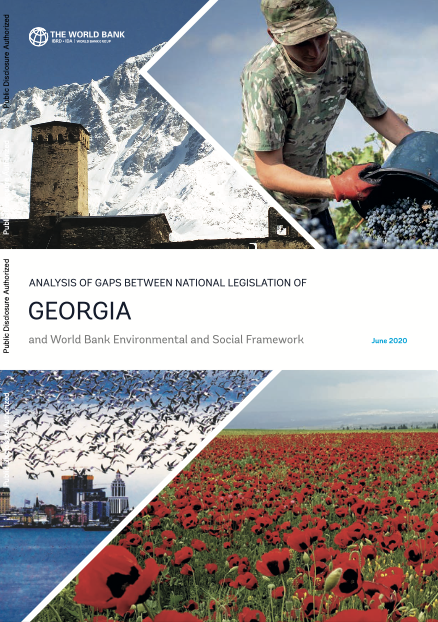Resource information
Over the last two decades, Georgia has made impressive progress in economic growth and reforms. These advancements have also brought about an increase in investments and infrastructure as well as in service sectors, such as tourism, that provide a potential for future growth and welfare. Georgia’s leaders and society have also recognized that the pursuit of growth depends on the sustainability of its development path. Sustainability, in turn, hinges on the protection of the country’s most valuable assets –its nature, people, and cultural heritage.
To achieve its development vision, as summarized in the “Georgia 2020” Platform and the Georgia- EU Association Agreement, Georgia needs to maintain high levels of inclusive and sustainable economic growth. Investments in infrastructure and services that bring about job creation and poverty reduction can be more resilient in the long term if they are accompanied by a strong commitment to environmental and social sustainability. Although rich in natural resources, Georgia is grappling with a range of shocks brought about by climate change, natural disasters, and most recently the global Covid-19 pandemic, as well with incremental environmental challenges such as pollution, deforestation, and land degradation. In order to maintain the resilience of its economy and society to environmental shocks and exclusion, Georgia needs to establish and maintain strong legislation, policy, and high-capacity institutions that can uphold high standards of environmental and social sustainability in all development investments.
This study assesses Georgia’s national legislation through the lens of the Word Bank’s Environmental and Social Framework (ESF).1 The ESF went into effect in 2018, marking a significant step forward in environmental and social risk management in World Bank- financed projects. The ESF is closely aligned with the environmental and social policies of other international financial institutions (IFIs), such as European Bank for Reconstruction and Development (EBRD), Asian Development Bank (ADB), Kreditanstalt für Wiederaufbau2
(KfW), Japan International Cooperation Agency (JICA), and has been globally recognized as a benchmark for good international practice on environmental and social sustainability.

